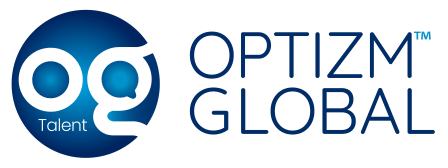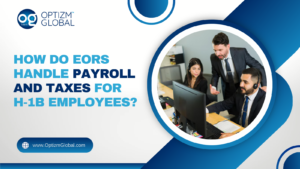Employee benefits are more than an amenity in today’s competitive job market—they’re a requirement. Small companies, though, tend to struggle keeping up with the benefit packages their larger counterparts provide. From increased costs of healthcare to reduced negotiating power with providers, providing a competitive benefits package can seem like an unattainable dream.
Step in the Professional Employer Organization (PEO)—a revolutionary solution for small businesses to pack a punch above their weight. By engaging the services of a PEO, small companies can enjoy competitive, quality employee benefits on par with large corporations at a fraction of the cost, without losing any time or money in the process.
Let’s take a look at how PEOs enable big-business benefits within a small-business budget.
What is a PEO?
A Professional Employer Organization (PEO) is a third-party HR partner that enters into a co-employment agreement with your company. While you maintain control over day-to-day operations and employee management, the PEO takes on the role of employer of record for benefits and tax purposes.
Through this relationship, the PEO can accumulate thousands of employees from a variety of client companies, providing them with the mass necessary to negotiate enterprise-class benefits at a fraction of the expense.
The Big-Business Advantages PEOs Offer
1. Cost-Effective Health Insurance
Health insurance is frequently the most costly and complex benefit for small companies to provide. In the absence of a large employer purchasing power, premiums might be prohibitively expensive, or coverage choices may be sparse.
PEOs address this by pooling workers from several small companies into one big risk pool. This opens them up to:
- Group health insurance schemes at discounted rates
- National provider networks
- Multiple plan options (PEO, HMO, HDHP)
- Optional life, vision, and dental insurance
PEOs also administer the plans, keeping HIPAA, ACA, and other regulations in compliance.
2. Retirement Plans (401(k) and Beyond)
Providing a 401(k) retirement plan is one of the best talent attractors and retainers, but small businesses frequently avoid it due to expense, legal complexity, and administrative hassle.
With a PEO, small businesses can:
- Participate in a multi-employer 401(k) plan
- Provide employer matching options
- Ensure ERISA and IRS compliance
- Provide employees with investment advice access
Best of all, PEOs take HR recordkeeping, nondiscrimination testing, and plan audits off their plate—time saved, risk minimized.
3. Employee Perks and Discounts
Today’s workers expect more than medical and retirement—they’re seeking perks that enhance their lifestyle, wellness, and personal growth.
PEOs provide small businesses with access to perks like:
- Employee well-being programs
- Mental wellness assistance and EAPs (Employee Assistance Programs)
- Exclusive store and travel savings
- Fitness reimbursements
- Training and development resources
These perks not only enhance morale—they create a positive employer reputation and employee loyalty.
4. Paid Time Off and Leave Management
Maintaining PTO policies and compliance with state or federal leave legislation is challenging, particularly for expanding teams.
PEOs assist in standardizing and managing:
- Paid time off (PTO) and sick leave plans
- FMLA and state family leave programs
- Disability and workers’ comp benefits
They also provide software to monitor leave balances, accruals, and usage, keeping everything transparent and compliant.
The Lean-Business Benefit
Working with a PEO isn’t simply improved benefits—it’s also lower costs. Here’s why and how PEOs enable small businesses to remain lean while providing more:
- Shared services eliminate HR overhead
- Group buying clout reduces benefit costs
- Compliance assistance avoids expensive fines
- Administrative automation saves time and labor
- Better employee retention saves hiring expenses
According to the National Association of Professional Employer Organizations (NAPEO), businesses that use a PEO grow 7–9% faster, experience 10–14% less turnover, and are 50% less likely to go out of business.
A Real-World Example
Imagine a 20-employee marketing agency desperate to provide good health insurance. By partnering with a PEO, they get access to a Fortune 500-standard benefits program—medical, dental, 401(k), and wellness benefits—at almost 30% below what it would cost to obtain them on their own.
The outcome? They make new hires with greater confidence, keep their best employees longer, and can spend more time on business growth.
Is a PEO Right for Your Small Business?
Although PEOs are extremely valuable, they will not be the best solution for every company. If your business:
- Employs 10 to 200 people.
- Is bogged down in HR compliance and admin overload.
- Needs to lure top talent with improved benefits.
- Is looking to grow without an inflated HR department.
…then joining forces with a PEO might be one of the smartest investments you ever make.
Conclusion: Leveling the Playing Field
In a talent-driven economy, small businesses can no longer be left behind. With a PEO, you don’t have to have deep pockets to provide best-in-class benefits—you simply need a savvy partner.
Whether it’s low-cost health coverage and retirement plans or lifestyle benefits and leave management, PEOs are helping small businesses keep up—and get ahead—on a big-business scale.






